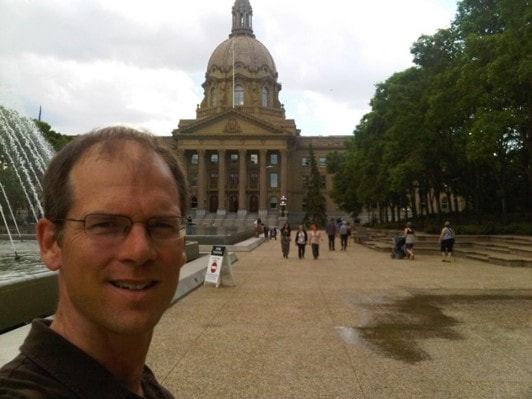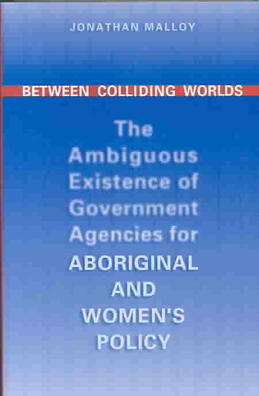The primary focus of my research and teaching is Canadian political institutions. A common theme in much of my work is ambiguity, particularly institutional ambiguity. I am constantly fascinated by the multiple and often contradictory expectations placed on public institutions. This is particularly true for Parliament, which I have long seen as a puzzle and paradox that labours under competing logics of governance and representation.
|
Parliament
I have long been intrigued by the puzzle of legislative representation in Canada and the many contradictions and conflicting impressions surrounding legislatures. For more on my work on Parliament and other legislatures, visit here. |
 At the Alberta Legislature, 2012. At the Alberta Legislature, 2012.
|
 The former Australian Prime Minister's Office, now part of the Museum of Australian Democracy in Canberra. I confess I jumped the rope and sat in the Rt. Hon Bob Hawke's chair.
The former Australian Prime Minister's Office, now part of the Museum of Australian Democracy in Canberra. I confess I jumped the rope and sat in the Rt. Hon Bob Hawke's chair.
Political Leadership
In addition to legislatures, I am interested in political executives, again often through the theme of ambiguity and conflicting expectations. I have written a number of publications on the Canadian prime ministership, often in comparison with its Westminster counterparts, especially Australia. One of my arguments is that the historic test for prime ministerial success in Canada has been negative - that the country has not split apart under their leadership. I also contend that the democratization of party leadership selection through mass voting has paradoxically increased the entrenched power of Canadian prime ministers, by making them virtually unremovable. For a list of my political leadership publications visit here.
In addition to legislatures, I am interested in political executives, again often through the theme of ambiguity and conflicting expectations. I have written a number of publications on the Canadian prime ministership, often in comparison with its Westminster counterparts, especially Australia. One of my arguments is that the historic test for prime ministerial success in Canada has been negative - that the country has not split apart under their leadership. I also contend that the democratization of party leadership selection through mass voting has paradoxically increased the entrenched power of Canadian prime ministers, by making them virtually unremovable. For a list of my political leadership publications visit here.
 The 'Cardboard Cathedral' in Christchurch, NZ.
The 'Cardboard Cathedral' in Christchurch, NZ.
Religion and Politics
My work on religion and politics focuses on the politics of evangelical Christians in Canada, including a comparative emphasis on Australia and New Zealand. This is a subject ripe with caricature, over-generalization and excessively polarized analyses from all sides of the ideological spectrum. I am no longer actively researching in this area but in my work I have tried to document this phenomena fairly and advance how political scientists can understand the complexity of religious identity and moral beliefs in advanced secular democracies. Read more about my religion and politics work here.
My work on religion and politics focuses on the politics of evangelical Christians in Canada, including a comparative emphasis on Australia and New Zealand. This is a subject ripe with caricature, over-generalization and excessively polarized analyses from all sides of the ideological spectrum. I am no longer actively researching in this area but in my work I have tried to document this phenomena fairly and advance how political scientists can understand the complexity of religious identity and moral beliefs in advanced secular democracies. Read more about my religion and politics work here.

Policy Coordination and 'Special Policy Agencies'
My doctoral dissertation and resulting book looked at government units responsible for coordinating policy in women's issues and indigenous affairs in Canadian provinces and Australian states. These units often had considerable responsibilities but limited budgets and highly variable political support. They also laboured under colliding expectations, often seen within government as too close to their issue areas, but by external groups as too much part of the state. I found that the most successful units and people embraced this ambiguous existence and found creative ways to pursue influence and policy success despite their in-between identity.
My doctoral dissertation and resulting book looked at government units responsible for coordinating policy in women's issues and indigenous affairs in Canadian provinces and Australian states. These units often had considerable responsibilities but limited budgets and highly variable political support. They also laboured under colliding expectations, often seen within government as too close to their issue areas, but by external groups as too much part of the state. I found that the most successful units and people embraced this ambiguous existence and found creative ways to pursue influence and policy success despite their in-between identity.
